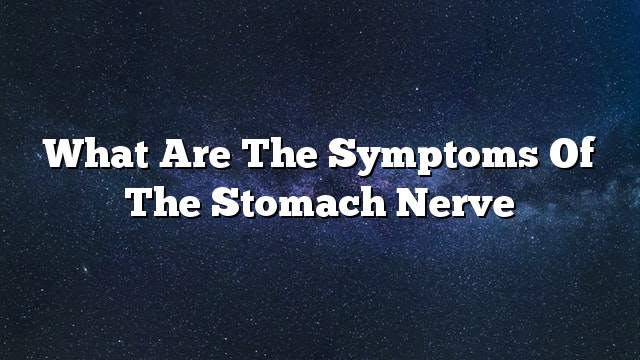Stomach nerve
Is a non-scientific term meant functional indigestion, also called non-ulcerative stomach pain. The term indigestion in general is used to express the pain of the head of the stomach, usually accompanied by other symptoms in the digestive system, which is often due to the existence of diseases or imbalances are known, but dyspepsia refers to the suffering of abdominal pain without any organic cause may be observed in the process Endoscopy. Functional indigestion is a common condition around the world, adversely affecting the quality of life of the patient.
Over the last two decades, doctors have continued to look for causes of functional indigestion. Several possibilities have been developed: late gastric emptying, gastric dysfunction of various conditions, or hypersensitivity in the internal organs, and the central nervous system may be responsible for infection. some cases.
When suffering from indigestion, many tests are performed, including gastroscopy; if an organic cause of dyspepsia is found, it is caused by anatomical or physiological abnormalities in the stomach, such as ulcers or tumors. The tests indicated that the endoscopy to the safety of the stomach then the diagnosis of functional indigestion.
Symptoms of functional indigestion
Symptoms of dyspepsia are very similar to those of other causes of indigestion. The most common symptoms of indigestion are as follows:
- Burning sensation or relatively mild pain at the top of the abdomen, or at the bottom of the chest, sometimes decreases when eating, or taking antacids.
- Suffering from frequent burping, as well as bloating and frequent gas in the abdomen.
- Feeling full early when eating.
- Feelings of nausea, and may accompany vomiting in some cases.
- There are symptoms you should feel when going to a doctor, such as:
- Suffering from continual exhaustion without interruption.
- Containment contains blood.
- Suffering from weight loss or lack of appetite for food.
- Feeling pain or difficulty swallowing.
- The appearance of the patient’s feces in a dark color; tar color, or if it contains blood.
Causes of dyspepsia
The cause of dyspepsia is often not known, but researchers have recently focused on several factors that can cause this dysfunction. These factors are as follows:
Treatment of functional indigestion
The patient must understand the condition he is suffering well, it helps greatly on the treatment, it is difficult to accept the idea that what suffers from it has no obvious reasons, and the doctor may take many therapeutic measures to alleviate the symptoms associated with dyspepsia, as follows:
